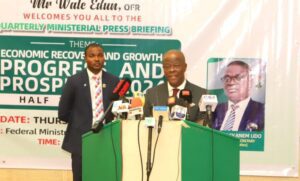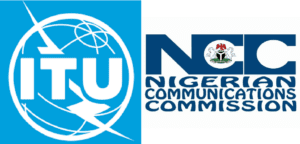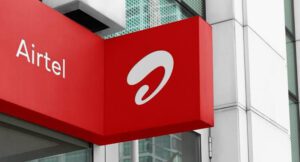
Fuel importation regime to end by Q1, 2024 — FG
…Eyes contribution of Port Harcourt, Dangote Refineries
…Says no control over rising price of kerosene
…Says NNPCL still government-owned
…Assures $250m CBN funding would facilitate investments into domestic gas
The Federal Government on Monday has projected that an end will be brought to the importation of petroleum products into the country by the first quarter (Q1) of 2024.
The Minister of State Petroleum Resources, Timipre Sylva at the resumption of the “PMB Administration Scorecard Series (2015-2023)” organised by the Ministry of Information and Culture on Monday said by Q1 2024 the rehabilitation of the Port-Harcourt refinery would be partly completed while the 650,000 barrel per day (bpd) capacity Dangote Refinery would also be on stream.
The scorecard series inaugurated Oct. 18, 2022, and featured 16 ministers was meant to showcase the achievements of the Buhari administration.
Presenting the scorecard of his ministry, Sylva specifically said that the 60,000 bpd capacity refinery within the Port-Harcourt Refinery complex would be ready for production by Q1, 2024.
Chief Sylva also expressed optimism that oil production would continue to improve as security in the Niger Delta region is beefed up, insisting that the Federal Government’s target of three million per day production was realisable.
The Minister added that the Dangote Refinery, the largest single-train refinery in the world with an investment of over $25 billion US dollars would also be on stream before the end of 2023 in addition to several modular refineries projects in the country.
He, therefore, assured that with the combined production of the Port Harcourt refinery, Dangote refinery and modular refineries, Nigeria would end the importation of petroleum products into the country.
The Minister disclosed that to ensure local supply of the productions by the private refineries, the Federal Government deliberately took a 20 per cent equity stake in the Dangote Refinery.
The Minister disclosed that the Federal Government took a 30 per cent equity stake in each of the 5,000bpd WalterSmith modular refineries in Ibigwe, Imo state and 10,000 bpd Duport Modular Refinery in Edo state among others.
He said that the government is currently addressing the challenge of access to crude oil being faced by the modular refineries.
The Minister also reiterated the position of the Federal Government that subsidy regime was no longer sustainable.
According to him, the huge fund being spent on subsidies could be deployed to other developmental projects that would impact positively many Nigerians.
He added that the removal of subsidy would attract more investment into the petroleum sector as many private people would be willing to invest in building refineries.
The Minister explained that it was important for Nigerians to understand that petroleum products prices are market-driven and based on the prevailing exchange rate, adding that petroleum products were still being sold at the cheapest rates in Nigeria compared to its neighbours.
While insisting that the best way to make petrol readily available for all Nigerians was through the removal of subsidies, which is not sustainable, the Minister however pointed out that the government is to ensure that the price is market-driven.
“If petroleum product prices are market-driven it would drive a lot of investments. A lot of private investors want to come in and invest in the Nigerian petroleum industry but who would want to invest under a subsidy regime?
“If you build a refinery, how is your refinery going to make a profit under a subsidy regime? But if you have a market-driven situation, a lot of investors will come and the problem of access to petroleum products will be a thing of the past,” Sylva stated.
…We have no control over rising price of kerosene
Meanwhile, he said that the Federal Government has no powers to intervene in the rising price of household kerosene, a major cooking energy for low-income earners and rural dwellers in Nigeria.
The Minister pointed out that the price of kerosene had already been deregulated and could no longer be controlled by the government.
He said, “Kerosene, which is the fuel for the average household, is already a deregulated product. It is not necessarily within the purview of the government but a now a commercial decision. Companies will import and sell kerosene at a commercial rate. It is a deregulated product.”
The latest data from the National Bureau of Statistics shows that kerosene price has risen by 145.86 per cent from N441 per litre in November 2021 to N1,083 per litre in November 2022.
He said the government was committed to the expansion of gas development, adding that the $250 million funding from the Central Bank of Nigeria would facilitate investments into domestic gas usage in Nigeria.
…NNPCL still government-owned
The Minister dismissed the notion that the new Nigerian National Petroleum Company Limited (NNPCL) which was created under the Petroleum Industry Act (PIA) was an independent company, pointing out that it remains under the Petroleum Resources Ministry.
“NNPC is not a private company; it is still 100 per cent government-owned. What has happened is that NNPC is now a commercial company and we allow it to operate commercially but it is still NNPC Limited, 100 per cent owned by the Federal Government of Nigeria and still under the purview of the Ministry of Petroleum,” Sylva pointed out.



